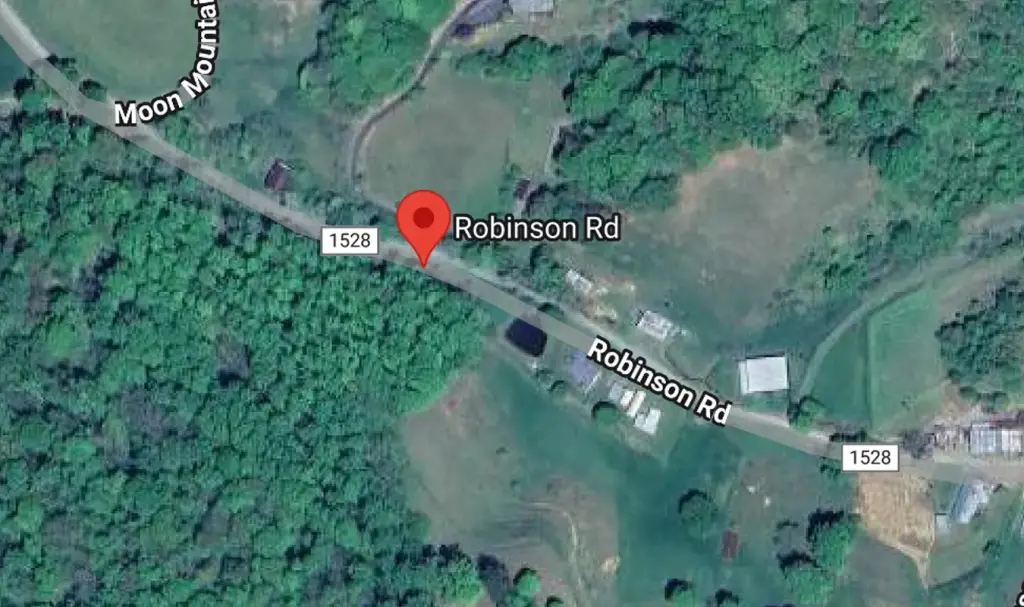Remains of a Mother of Two, Last Seen Walking Barefoot, Identified Months After Her Disappearance in Maine
The calm of a summer’s morning in northern Maine dissolved into heartbreak for the family of Tomis Hoyt when they learned that her remains, discovered in the remote town of Blaine, Maine, have been officially confirmed — the woman had been missing since July, last seen walking along a rural road barefoot and without money. On Wednesday, November 12, the Office of the Chief Medical Examiner in Augusta identified the body found on October 30 as that of Hoyt, age 36, from the Presque Isle area.

The disappearance of Hoyt began in mid-July when the Aroostook County Sheriff’s Office issued a missing-person alert after she was last captured on surveillance footage walking along Robinson Road in Mars Hill, barefoot, wearing ripped jeans and an orange-pink tank top, and apparently without money. Her family — who have described her as a mother of two, sober for nearly a decade yet still wrestling with mental-health and addiction issues — watched days stretch into weeks as hope gradually dimmed.
When a resident of Blaine discovered human remains on October 30 and reported it to local authorities, the family held out for the investigative process to run its course. On November 12, the state officially confirmed what they feared. Hoyt’s cause and manner of death remain under investigation; no further details have been released by the authorities at this time.

For the Hoyt family, the months of uncertainty and waiting yielded only heartbreak and loss. Her relatives had issued public pleas for help — one aunt, Selena Hoyt Belser, tearfully implored her: “For the love of God, come home. We want you to come home, Tomi.” The discovery and identification of her remains mean that the search has ended—but the questions remain: how did a woman known to her community vanish so quietly, and what happened in those intervening months?
In the tiny communities of northern Maine, this loss resonates deeply. Blaine, Mars Hill, and Presque Isle are linked not just by roads but by the quiet connections of small-town life, where people know each other by name and offer help without being asked. The fact that Hoyt, a mother of two, could walk out of her life without notice and remain missing for months adds layers of grief and concern for her family and neighbors alike.
The emotional toll on her children, family, and friends is immeasurable. There will be no full answer yet, no closure beyond the confirmation that she will not return. Instead, her children face life without their mother, her siblings face unanswered questions, and her community faces the solemn task of imagining what went wrong. The period of daughter, sister, mom, friend turned to absence will be marked in memory, not in her presence.

Authorities continue to review the scene, her disappearance, the timeline, and the path that led to her being found in Blaine — roughly 15 miles from her last known location in Presque Isle. That distance, the terrain, the rural roads of Aroostook County — all present complexities. Investigators are examining whether foul play is involved or whether other factors — such as mental-health crisis, exposure, or accident — may have contributed. The statement from state officials was brief: the investigation remains active and no additional information is being released at this time.
The circumstances of her disappearance raise serious questions about vulnerability and safety in rural America. A mother seen barefoot walking along a sparsely traveled road without money in July invites concern about exposure, isolation, and mental-health crisis. According to reporting, Hoyt had been sober for nine years, yet continued to face struggles, and her family had attempted to support her.

Within the case lies a stark reminder of how easily a person can slip from view, especially in remote settings. In regions where distances are vast and populations sparse, and where weather can turn suddenly and infrastructure may be limited, every hour counts. For those who found the remains and for the law-enforcement personnel who processed the scene, the weight of time, terrain, and unanswered questions is heavy.
As the weather turns colder, the north Maine landscape takes on the stillness of winter coming, but the memory of this summer’s warmth and promise will forever be tinged with grief. The community of Presque Isle–Mars Hill–Blaine will remember not just a missing woman, but a cherished daughter, sister, and mother whose life mattered deeply. Her children will carry her absence, her loved ones will carry what-ifs, and the authorities will carry the responsibility to bring answers.
With the official identification now complete, the focus for Hoyt’s family is shifting: from hoping she would return to gathering memories and beginning the process of mourning. Memorial arrangements, outreach, and support will now play a key role in helping siblings, children, and extended family cope. Meanwhile, in the legal domain, the investigation continues: forensic evidence, timelines, potential witnesses, and the cause of death all await completion.
Today, the headline reads that a missing mom has been found. But behind the words is a tapestry of harder truths: the lived pain of a family undone, the rural expanse that sheltered her disappearance, the unanswered questions that will linger, and the community that now holds one more vacant place.
For Tomis Hoyt’s children, each day ahead will be marked by her absence. For her family, the months of waiting have given way to the long road of grief. For the community, the case offers a reminder of vigilance, connection, and compassion. And for anyone reading, it serves as a sober prompt to take notice: sometimes disappearance begins not with drama, but with a quiet step along a road.
More than anything, this story is about loss. A loss that could have been prevented only if circumstances had aligned differently, if someone had noticed sooner, if that July morning had ended differently. As the investigation unfolds, as the family remembers, and as the community grieves, one truth remains: a mother of two who walked barefoot into the unknown is now gone, and the world remains less for it.



